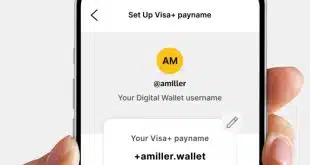The Federal Reserve may be shepherding a nationwide effort to bring real-time payments to the United States, but that doesn’t mean payments companies are marking time while that process unfolds. The latest development is Tuesday’s announcement that bank processor Fiserv Inc. will work with risk manager Early Warning Services LLC to speed up bill payments and bank deposits.
The two companies said they will begin a pilot for the new service early in 2016 and launch it as a commercial service later in the year. Initially, the service will concentrate on bills served up by financial institutions, such as mortgage statements and credit card bills. It will also enable real-time deposits, allowing depositors immediate access to funds.
The news follows a series of developments over the past few years to speed up consumer payments in the United States. Besides the Fed, companies such as The Clearing House Payments Co. LLC and Fidelity National Information Services Inc. (FIS), and startups like Dwolla Inc., have introduced faster-payments systems. So-called real-time payments are already established in countries such as Australia and the United Kingdom.
“In today's marketplace, people want real-time results, and expectations with banking transactions are no different,” said Kleber Santos, executive vice president of consumer banking at Capital One Financial Corp., in a statement. Cap One is one of five bank owners of Scottsdale, Ariz.-based Early Warning.
Key to real-time funds movement is visibility into funding accounts. Between the two, Fiserv and Early Warning service about 6,000 financial institutions of various sizes, including the country’s 40 largest banks and credit unions. These institutions hold about three-quarters of the nation’s deposit accounts, according to the companies. Early Warning alone operates a good-funds network that it says has visibility into 95% of the nation’s deposit accounts.
For bill payments, Brookfield, Wis.-based Fiserv will deploy its NOW Network, a system it launched last year to connect billers and banks for real-time transfers and person-to-person payments. The network includes more than 50,000 billers and more than 4,000 institutions.
“This initiative will make it much easier for financial institutions of all sizes to credit deposits more quickly and to enable an instant bill-payment system that’s more efficient than those in today’s marketplace,” said Ken Zimmerman, an executive vice president at Wells Fargo & Co., another of the bank owners of Early Warning, in a statement.
Last week, Early Warning announced it is acquiring San Francisco-based clearXchange, a P2P payments service owned by many of the same banks that own Early Warning. Terms of the deal were not announced. In June, clearXchange also introduced a real-time service, which can now be combined with Early Warning’s risk-management capabilities.
Bank of America Corp., JPMorgan Chase & Co., Capital One, and Wells Fargo share ownership in each company, with BB&T Corp. as the fifth owner of Early Warning and U.S. Bancorp as part owner of clearXchange. As part of the deal, U.S. Bank and PNC Financial Services Group Inc. are expected to become co-owners of Early Warning.
Other recent developments include The Clearing House’s move to incorporate technology and expertise from FIS and the U.K.’s VocaLink for its own real-time initiative. Meanwhile, the Fed has formed a 328-member Faster Payments Task Force to sort out issues surrounding the creation of a national real-time payments system.






